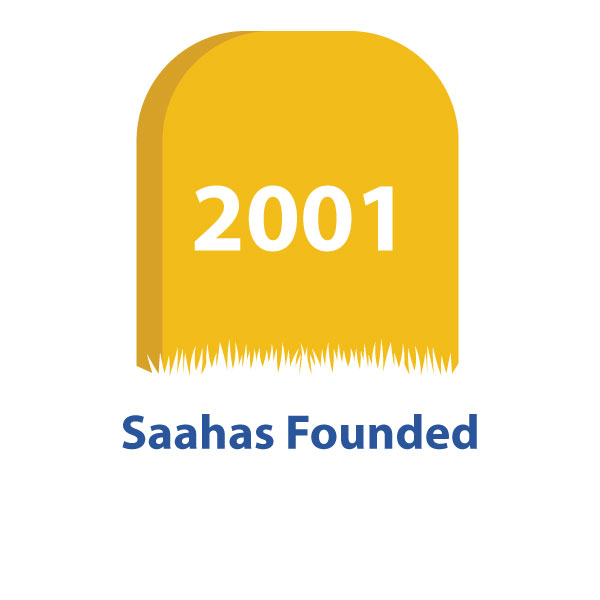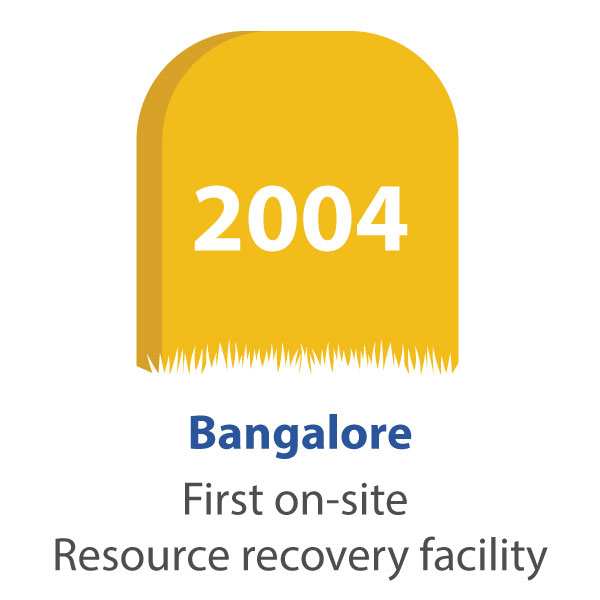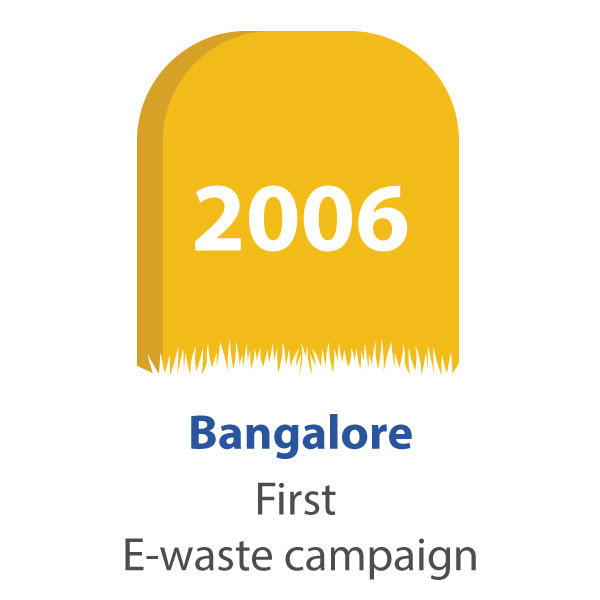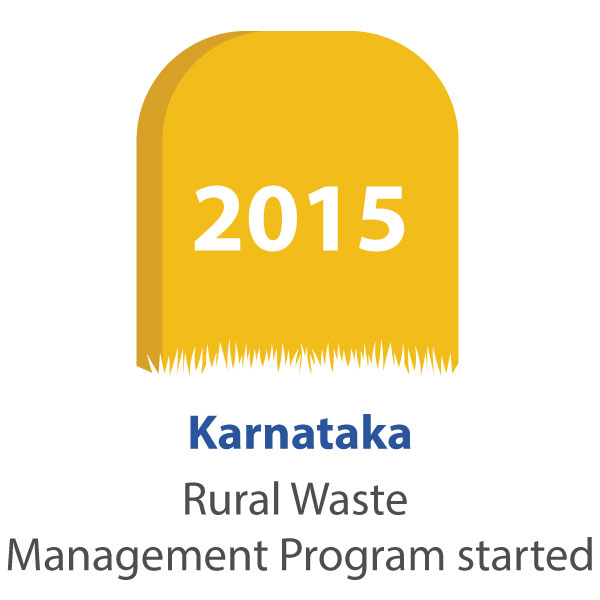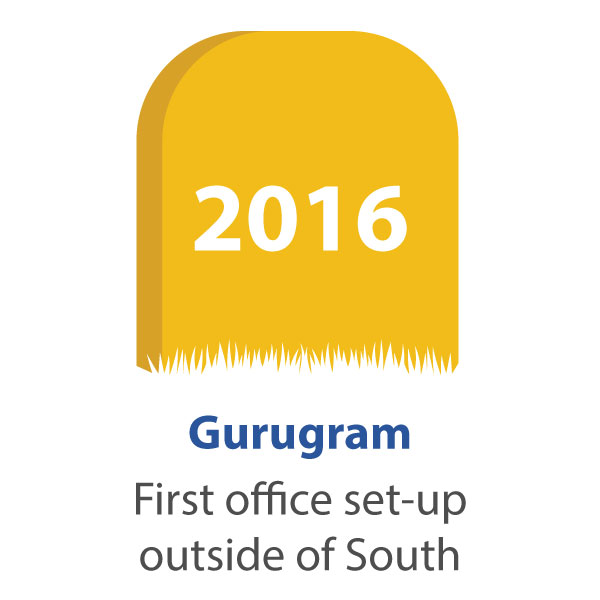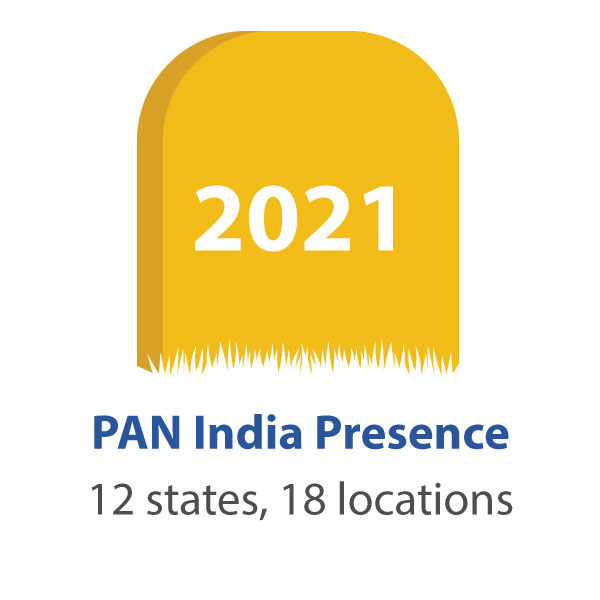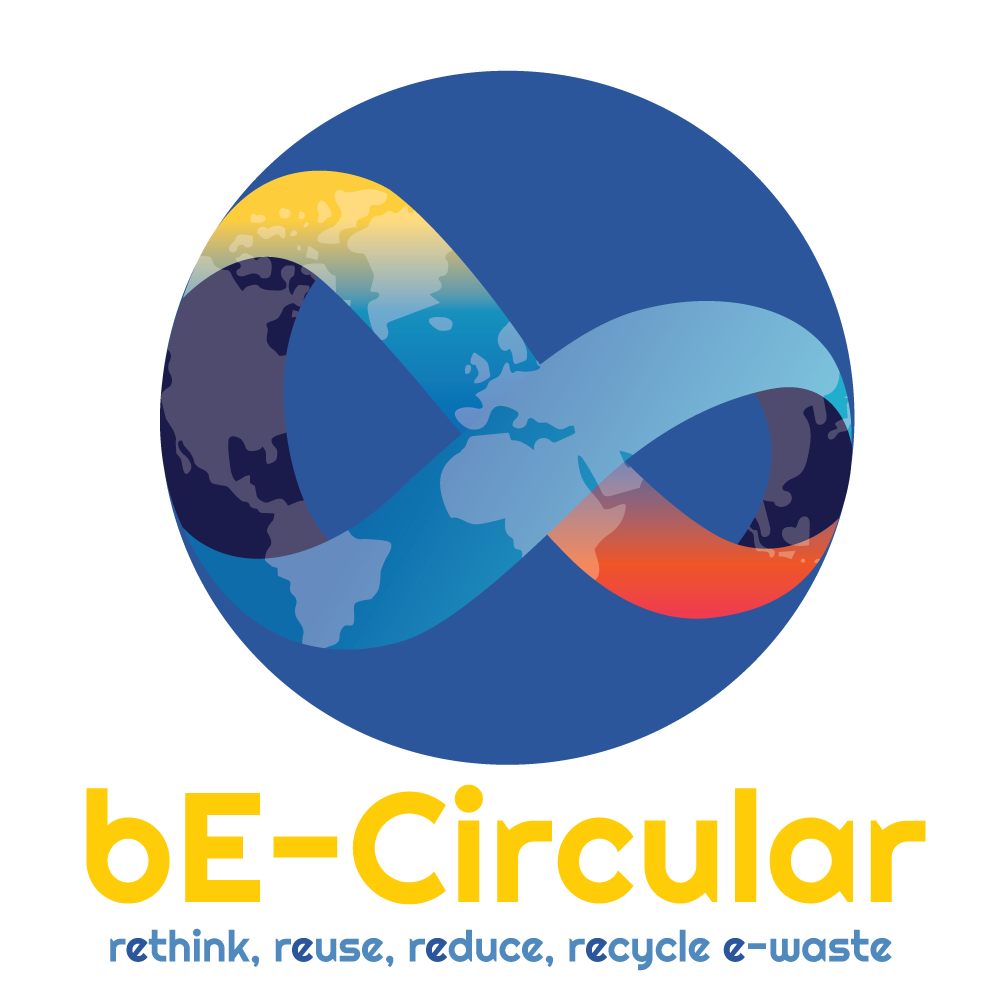The bE-Circular Initiative
The bE-Circular initiative is an awareness, collection and management program for non-bulk users. We actively engage with students and adults – in schools, universities and residential societies to establish an E-waste reverse logistic system in each of these institutions.
Highlights and Learnings so far (2021-2023)
Our concerted efforts to raise awareness about e-waste resulted in impactful and far-reaching outcomes. The strategic initiatives undertaken demonstrated a tangible shift in community behaviour, aligning with the principles of Reduce, Reuse, and Recycle (3R). Here’s a snapshot of the key activities and the significant outcomes achieved:
Residential Community Engagement
Collaborating with 43 Resident Welfare Associations (RWAs) allowed us to introduce e-waste drop boxes, reaching 77,005 individuals. The installation of drop boxes, alignment with recyclers, awareness programs, and training of housekeeping staff in 24 RWAs fostered a community-wide commitment to responsible e-waste disposal.

Student Engagement
Engaging with 23 schools and directly involving 7,455 students proved to be a game-changer. Competitions, online sessions, and excursions not only educated but instilled a sense of responsibility in the younger generation. The installation of drop boxes in 9 schools further solidified our commitment to shaping responsible e-waste practices from an early age.
Public Events
Notable events, including a photo essay exhibition and webinars, created a substantial impact. The exhibition at Dilli Haat, showcasing the Seelampur informal system, generated widespread interest and numerous queries, contributing to a heightened awareness level.
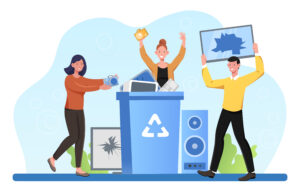

Media Outreach
Two successful radio campaigns resulted in the collection of 1,562 kilograms of e-waste, showcasing the effectiveness of targeted outreach. Extensive social media campaigns and mentions in prominent publications further strengthened our message, fostering a broader understanding of e-waste management systems.
Total e-waste collected
A remarkable achievement was witnessed with a total collection of 7.2 tonnes throughout the project. This concrete measure underscored not only the success of our awareness initiatives but also the community's commitment to responsible e-waste disposal.
Learnings
Strengthening the collection system through collaborations with more recycling agencies across diverse locations is imperative for a seamless logistics system.
Exploring partnerships with retail outlets to establish convenient e-waste collection points for non-bulk users.
Expanding the project's reach in Delhi NCR, including colleges and universities in our engagement efforts.
Enhancing engagement with radio for a wider reach and effective behavioural change communication.
Building online communities through social media engagement for sustained awareness.
Plan for 2024
Based on the learnings so far, the key objectives for the next phase of the program are as follows:
Increase the awareness of responsible e-waste disposal amongst the general public in the NCR region.
Strengthen the collection system by collaborating with retail stores and with Producer Responsibility Organizations (PROs) and recyclers for scheduled collection.
Having drop boxes in certain areas for citizens to drop their e-waste.
The focused topics for all community activities would include:
Responsible disposal of e-waste
Encourage ‘repair’
Residential Community Engagement
Student Engagement
Public Events
Media Outreach
Total e-waste collected
Why E-Waste?
E-Waste is the fastest growing waste facing the world today. The digitalisation of our worlds and our throwaway lifestyle are the two main reasons for this growing pile.
Globally, India is the 3rd largest producer of E-Waste – 3.2 million metric tonnes in 2019, estimated to be 5 million metric tonnes by 2020. 82% are household items, while 12% are our phones alone.
Extraction of metals for our electronics and electrical goods require mining. The entire process of extraction and processing of new metals directly contribute to Climate Change – mining leads to extensive deforestation while polluting the environment and releasing carbon dioxide in the atmosphere.
Alternatively, if individuals and household consumers repair and reuse more often, we can reduce the amount of E-waste generated. If all of us discard our E-waste with only authorised recyclers, we can increase the percentage of E-waste recycling from 10% currently to much higher, and ensure metal recovery from our E-waste to be reused in our E-products. This process can remarkably reduce our carbon footprint and also save our environment from being polluted.
About Saahas
Saahas is a non-profit organisation working in the field of waste management. At Saahas, we believe that when waste is managed at source, it becomes a resource. Since 2001, we have been helping build communities across rural and urban India that manage their waste at source by reducing, reusing and recycling their waste and achieving 90% resource recovery. We are now present in 12 states.
About Saahas
Saahas is a non-profit organisation working in the field of waste management. At Saahas, we believe that when waste is managed at source, it becomes a resource. Since 2001, we have been helping build communities across rural and urban India that manage their waste at source by reducing, reusing and recycling their waste and achieving 90% resource recovery. We are now present in 12 states.
